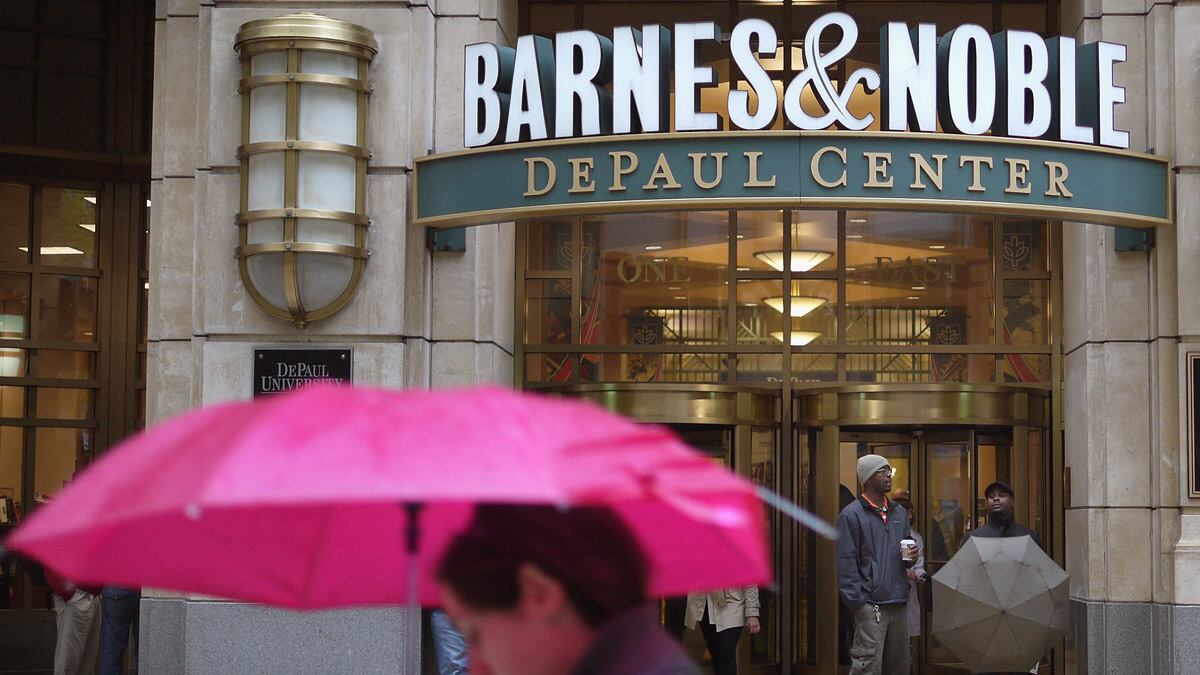The collapse of Borders gave Barnes and Noble some breathing room; it's pretty much the last mass bookstore left standing.

But as Best Buy illustrates, that breathing room doesn't necessarily save the firm; eventually, the same forces that took out your weaker competitors will attack the last category killer standing.
Barnes and Noble is in a particularly vulnerable position, because sells Amazon's core product. And Dennis Johnson suggests that the bell is finally tolling for B&N:
Maybe you’ve noticed that there seem to be a lot of Barnes & Noble superstores closing lately? Not just stores in remote locations (like, say, this one in rural upstate New York), but in some of the nation’s largest metropolitan shopping areas, such as Los Angeles, San Francisco, Philadelphia, Washington, DC, Seattle, Chicago, two stores in Dallas, another in Austin, and Manhattan. And that’s just in the last 30 days or so.
B&N's earnings have been pretty grim. And it's hard to see where a turnaround is going to come from: Nook sales were disappointing over the holidays, and the trend towards buying online is only accelerating.
I think that this is a shame, because I think there's evidence that customers really value the browsing experience; Amazon recommendations are more of a complement than a substitute for the serendipity of a store's shelves. Something real will be lost if the bricks and mortar bookstore goes away. But these days, it seems that customers don't value that thing enough to actually pay for the pleasure.
When I wrote about Best Buy, I suggested that the future for stores like these was downsizing, shedding expensive and unneeded real estate, and offering customers a premium experience that they couldn't get online. But books are badly suited to that sort of strategy. A small electronics shop can still offer you a very comprehensive selection of what's available on the market, because there just aren't that many brands or models in a given year. A small bookstore, by contrast, means that only a small fraction of what you might want to read is there. Sure, reading tends to be concentrated on a relatively small number of popular titles--but you don't need a bookstore for that. It's easy enough for any large store, like a Target or a supermarket, to stock the handful of current bestsellers. Which is, in fact, the other major source of competitive pressure on Barnes and Noble's bottom line.
The avid readers who want rare titles are going to end up on the internet. The casual readers who want the latest bestseller are going to end up in Walmart. And I don't see much room in between for small booksellers, except maybe in a few niche markets.






